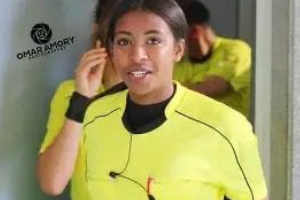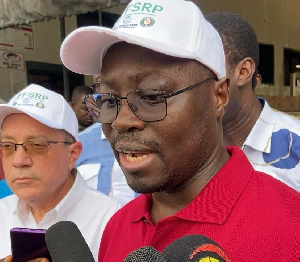The Supreme Court of Ghana on Tuesday, October 20, quashed the trial and conviction in absentia of Dubai-based Indian businessman, Arvind Kumar Bhatnagar by the High Court in Accra.
Mr. Bhatnagar, a director of Eland International Ghana Limited was tried in absentia and convicted by the High Court presided by Justice Charles Quist on February 27, 2015 for an alleged conspiracy to defraud, defrauding by false pretenses and forgery among other charges.
The case was in connection with a Collective Management Agreement signed between Eland and the National Investments Bank and for which the Bank had charged and received collateral management fees of 109,000 dollars. The High court sentenced Mr. Bhatnagar to a fine of GH¢500,000.00 or 12 months imprisonment in default on each count.
However his lawyer, Fidelity Law Group argued that, long before the criminal trial commenced and ended in his conviction and sentencing, he had relocated out of the country, causing his lawyers, Fidelity Law Group to file an order of certiorari to quash the conviction and sentence on the grounds that the processes leading to his conviction and purported trial were inconsistent with the 1992 national constitution of Ghana and therefore a nullity.
The five-man Supreme Court panel chaired by Justice William Atuguba, with Justices Anin Yeboah, Paul Baffoe-Bonnie, A. A. Bennin and J. B. Akamba being the other members of the panel in a brief ruling, agreed with the submission of Kumar Batnagar's lawyers and therefore quashed the High Court's conviction and sentence.
The lawyers had submitted that the prosecution had failed to comply with Article 19 of the Constitution which demanded of them to have served or notified Arvind Bhatnagar of the charges against him and the resultant trial.
“My Lords the legal and factual basis for this application is grounded in our contention that the Attorney General and the Trial High Court acted ultra vires of our 1992 Constitution in particular Article 19 (2) and (3), 23, and 296. As such the trial and the conviction and the sentence that came with it must be declared null and void and of no effect,” they had argued.
The lawyers had argued that per Article 19(3), the trial of a person charged with a criminal offence shall take place in his presence unless he refuses to appear before the court for the trial to be conducted in his presence after he has been duly notified, or he conducts himself in such a manner as to render the continuation of the proceedings in his presence impracticable and the court orders him to be removed for the trial to proceed in his absence.
But they said while Arvind Bhatnagar lived in Ghana voluntarily and exited the shores of Ghana on his own volition on January 31, 2007 as a free man, he was never charged with any offence or notified of any trial involving him.
“My Lords, the Applicant left the shores of Ghana on January 31, 2007 as a free man. He has never been arrested for the offences he was charged with in the trial at the High Court. The Applicant has also never been charged with or notified of any prosecution against him.
“The Republic has never issued an arrest warrant for his arrest neither has there been any extradition proceedings to secure his presence at the purported trial.
“From the record of proceedings which is attached as “Exhibit AKB 3” the Republic was silent on whether the Applicant was duly notified of the criminal action against him or at all. The trial judge also did not take any concrete steps to secure the fair trial rights of the Applicant.”
Counsel argues that the Republic initiated the prosecution of the suit in or about 2010 against the applicant but since no arrest warrant was issued, no criminal summons served on him or was any extradition proceedings concluded, the applicant could not have appeared at the commencement of the trial for him to be duly arraigned before the High Court.
Crime & Punishment of Saturday, 24 October 2015
Source: GNA












